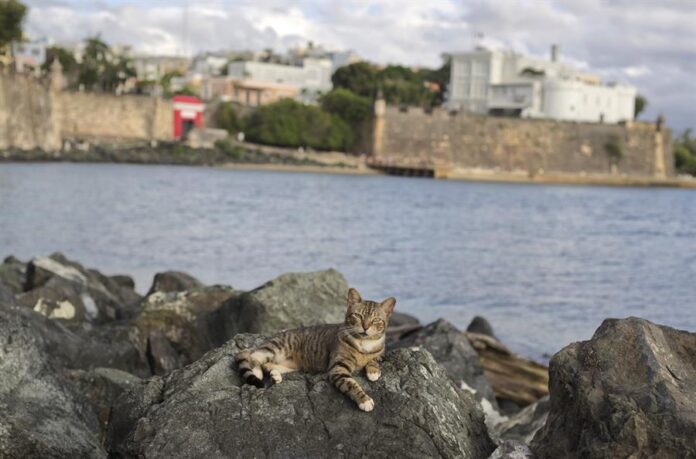
While the mainstream debate on Puerto Rico’s political status oscillates between annexation to the United States and independence, there is a small minority that wants the Caribbean island to return to Spanish rule, championed by the organization Adelante Reunificacionistas (Forward Reunificationists).
The organization, created in 2017 and made up of only 36 people, participated in the debate of the UN Special Committee on Decolonization for the first time last week, an opportunity it has been seeking for some time.
«We believe that Puerto Rico’s case before Spain is a decolonizing alternative to the colonial situation of Puerto Rico,» which is currently an unincorporated United States territory, José Alfredo Lara, president of the organization, told EFE.
«In Puerto Rico, there are a lot of people who follow and tune in to the reunification, but they are not in the streets and they do not present themselves as such because they are afraid of repression and of losing their jobs,» said the president of the movement.
Although this option is not being considered at the political and popular level, according to Adelante Reunificacionistas, in a survey conducted by the organization in 2022, 16% of those questioned supported the option of rejoining Spain.
Lara recalled that Puerto Rico was » Spain’s first autonomous community» before the current 17 were created, and that in October 1897 the island had deputies and senators in the Spanish Court.
In the same vein, another of the movement’s leaders, Anette Falcón, who spoke before the UN Special Committee on Decolonization, expressed the desire to «regain representation in the Spanish Congress of Deputies».
«We want to return to Spain because it is a democratic and modern country committed to our Western civilization. And long live Spain, motherland, and long live Spanish Puerto Rico. Olé!» said Falcón.
«We are calling for a conversation between Spain and the US to resolve more than 126 years of unnecessary colonialism in Puerto Rico, a product of the Spanish-American War,» Lara explained.
The 1898 Treaty of Paris ended the war in which Spain lost Puerto Rico, Cuba, the Philippines and Guam.
A population divided over its political future
According to Lara, the alternative of returning to Spain should be taken into account, and the debate should not be based solely on maintaining the current status, becoming a US state, becoming fully independent, or becoming a freely associated state.
There is currently a bill before Congress in Washington calling for a binding referendum on the island in which Puerto Ricans can choose between statehood (annexation to the US), independence, or “sovereignty in free association with the United States.”
It remains to be seen whether Washington will ever approve a binding plebiscite.
In Puerto Rico, the governing New Progressive Party (Partido Nuevo Progresista, NPP) has made statehood its slogan, while the opposition Popular Democratic Party (Partido Popular Democrático, PDP) and the Puerto Rican Independence Party (Partido Independentista Puertorriqueño, PIP) advocate maintaining the current status and independence, respectively.
Puerto Ricans are US citizens, abide by the Constitution, and are subject to federal law, and the island’s borders, defense, and foreign relations are the responsibility of the US government.
Despite this, Puerto Ricans do not have the right to vote for the president of that country, so Adelante Reunificacionistas demands the right to vote for the president of Spain.
The United Nations has been studying the political status of Puerto Rico since 1953 and in 1978 determined that a «colonial relationship» existed between the US and Puerto Rico.





